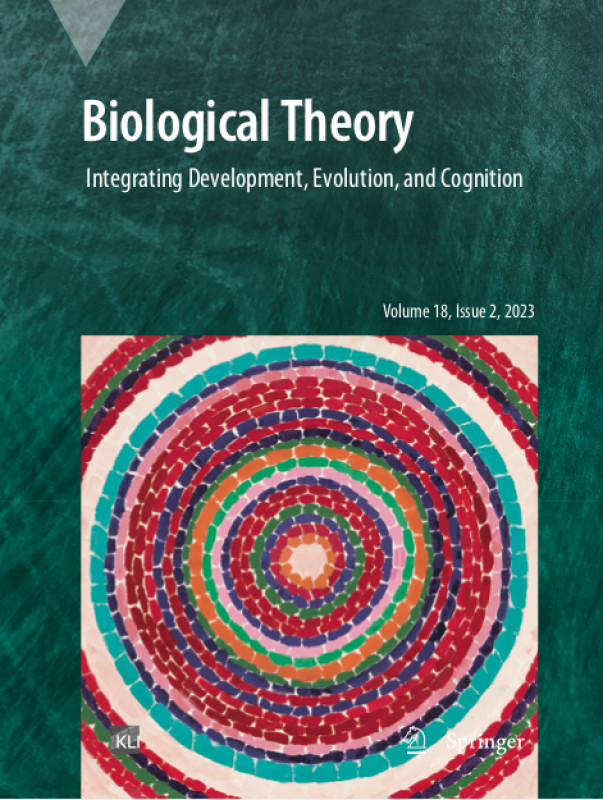News Details

In Biological Theory’s June issue, 18(2), Wim Beekman and Henk Jochemsen address the question of how the conversion of information into organization is realized in living cells. They argue for the view that living organisms self-organize from disequilibrium by directing the construction of nanomachines that exploit gradients in entropy, distinguishing in their treatment among a range of complementary concepts including biosemiotics, code biology, and physical versus biological self-organization.
Max Dresow and Alan Love review the history of how the concept of teleonomy came to compete with, displace, and then be displaced by teleology and its reconceived versions as theories of evolution, biological function, and adaptation underwent change from ancient Greece to modern times. They conclude that the period of its usefulness may have passed.
Matthew Sims describes four different ways that organisms might acquire models for enacting anticipatory behavior, over both phylogenetic and ontogenetic timescales. These involve mutational or epigenetic inheritance, associative learning, and phenotypic plasticity/ Baldwin effect-based modes of acquisition. He discusses the “often still overlooked causal interplay between ontogenetic and phylogenetic plasticity.”
Looking at the late Miocene period in Eurasia and evolutionary adaptations of large-fruit trees there, Robert Spengler and colleagues argue that large primates likely contributed to their seed dispersal, a possibility that would represent a seed-dispersal “mutualism with hominids millions of years prior to crop domestication” or farming.
The issue includes a contribution by Marion Blute to our “Critical Concepts” collection. Drawing on Charnov’s modification of Fisher’s sex ratio principle, she argues that costs are a neglected factor in evolutionary theory essential in complementing the better-known role of (genotype or phenotype) frequency-dependent selection.
In a Perspective essay on the work of 19th-century scientist Edward Drinker Cope, George McGhee discusses how Cope’s ideas about centering the organism in the evolutionary process anticipated the focus of the present-day Extended Evolutionary Synthesis on how the agency of organisms plays a role in their own evolution. We’re also looking forward to presenting a “Classics” article from McGhee, in a near-future issue, that will delve into the ideas of this protean scientist through one of his key papers.

